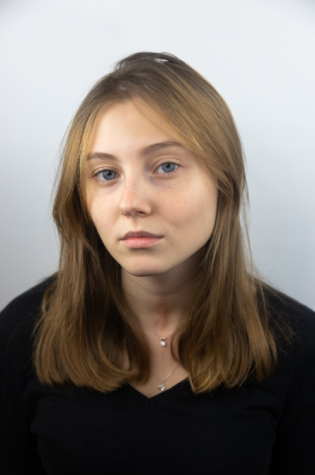Baruch’s virtual 2021 commencement meets mixed opinions
June 17, 2021
Baruch College held a virtual commencement ceremony for the class of 2021 on May 27, awarding degrees to more than 5,600 undergraduate and graduate students.
The 50–minute–long ceremony featured speeches by CUNY Chancellor Félix Matos Rodríguez, Baruch President S. David Wu and Baruch Interim Provost and Senior Vice President for Academic Affairs Myung-Soo Lee.
It also featured keynote speaker Assembly Member Karinés Reyes and a performance by Baruch’s acapella group, the Blue Notes.
“You are stronger for what you endure, and you’re ready to leave your mark in the world, who would never forget your courage and resilience,” Matos Rodríguez said during his speech about the class of 2021 and the challenges that graduates faced during the COVID-19 pandemic. “I hope you never forget CUNY because we’re always here for you.”
This was Wu’s first commencement since he was appointed as the president of the college. His speech highlighted the unique experiences and opportunities Baruch offers as a public institution.
“Providing access to excellence is Baruch’s differentiator,” Wu said. “And it gives us an advantage that you do not see in other top tier universities: true diversity in all dimensions.”
Valedictorian Alyssa Fuchs, who graduated from Baruch with a major in finance and minor in New York City studies, also addressed the class of 2021 during the ceremony.
“Baruch College has taught me what it means to work hard in a competitive environment while staying true to my values and ensuring the success of the others around me as well,” Fuchs said. “I believe these often contrast the characteristics not instituted and encouraged in many other schools, which is what lends to Baruch College’s unique and extraordinary reputation.”
She also spoke to the ability of the Baruch community to inspire.
“Having spent the past four years surrounded by a variety of individuals, each with a distinct life story, I’ve been continuously reminded how crucial it is to be prepared for what is yet to come,” she said.
Economist and Harvard University professor Raj Chetty received an honorary degree from Baruch during the virtual ceremony for his work.
Chetty’s work has shaped public policy and bolstered understanding of the importance of CUNY and other institutions of public higher education in promoting social mobility, according to CUNY’s press release about the commencement ceremonies.
Each school within Baruch — the Zicklin School of Business, the Weissman School of Arts and Science and the Marxe School of Public and International Affairs — awarded a symbolic diploma to one of their graduates.
Besides the receivers of the symbolic diplomas, the rest of the graduates’ names were not mentioned during the ceremony. Instead, graduates were able to view their virtual diplomas through each school’s dedicated website after the ceremony.
Many students expressed their disappointment in the virtual ceremony in the comments section of the YouTube video.
“We have been robbed [of] a graduation ceremony,” Samad Sunny, a Zicklin graduate who majored in information risk management and cybersecurity, commented. “How cheap and disrespectful Baruch can be? I love [Baruch] so much but it doesn’t feel like our school loves us back.”
Sunny told The Ticker via text that he wished Baruch would have had an in-person ceremony with masks and social distancing measures.
“There’re so many students like me [who] are first generation college students, and this is a once in a lifetime opportunity,” he said. “It ended without even displaying our names.”
Sunny was not the only one complaining in the comments section. Other users also mentioned the lack of effort put into the ceremony and the fact that it failed to acknowledge the names of hundreds of graduates.
“But make no mistake, that does not make this modified commemoration any less memorable,” Matos Rodríguez said about the online ceremony. “For more than a year now, you confronted a relentless confluence of circumstances and challenges for which none of us could be adequately prepared.”
Similar to CUNY, other New York City colleges including Columbia University and New York University both held their commencement ceremonies virtually.
The virtual nature of the ceremony also caused issues while Fuchs, the valedictorian, was delivering her speech. Random users made anti-Semitic comments in the live chat, addressing the conflict between Israel and Palestine.
“The focus of my speech was resilience and gratitude, which I believe is a topic many, if not all, Baruch students relate to, and I used my own personal experiences to expound upon the subject,” Fuchs told The Ticker. “At no point in my speech did I discuss the conflicts in the Middle East, so I was shocked and disgusted to see ‘Free Palestine’ comments posted just as I started speaking. Right after my speech, I received various texts and calls from my fellow classmates of various backgrounds and religions, expressing their support and sharing in the shock of the inappropriate and uncalled for comments.”
Fuchs sent an email to Dean of Students Art King on May 25, encouraging Baruch to condemn the anti-Semitic behaviors.
“He responded the following day saying that it is ‘extremely disgusting’ and that ‘our world is sadly filled with ignorance.’ In the same email he said ‘the campus is meeting to work on a statement.’” However, at that point, no statement was delivered.
Following the commencement on May 27, Fuchs sent a follow up email to King. The chat replay function on YouTube was disabled for the commencement video later that day, and King sent out a statement.
“NYPD and media have been reporting increased incidents of anti-Semitic aggression around the city. As most of our students come from in and around New York City, and our campus is located in the heart of the city, these reports make us think of you and your safety,” King’s email stated. “We condemn any assault—physical, verbal, or virtual via social media—and stand strong in our commitment to fairness, equity, and mutual respect.”
Even though King’s email condemned anti-Semitic aggression, it did not mention the comments made during commencement.
“The message was very vague and did not make note of the inappropriate comments during the commencement presentation,” Fuchs said. “I was extremely disappointed in the way that the college handled the entire situation. As I mentioned in my speech, as a Baruch community, it is important that we respect one another.”








